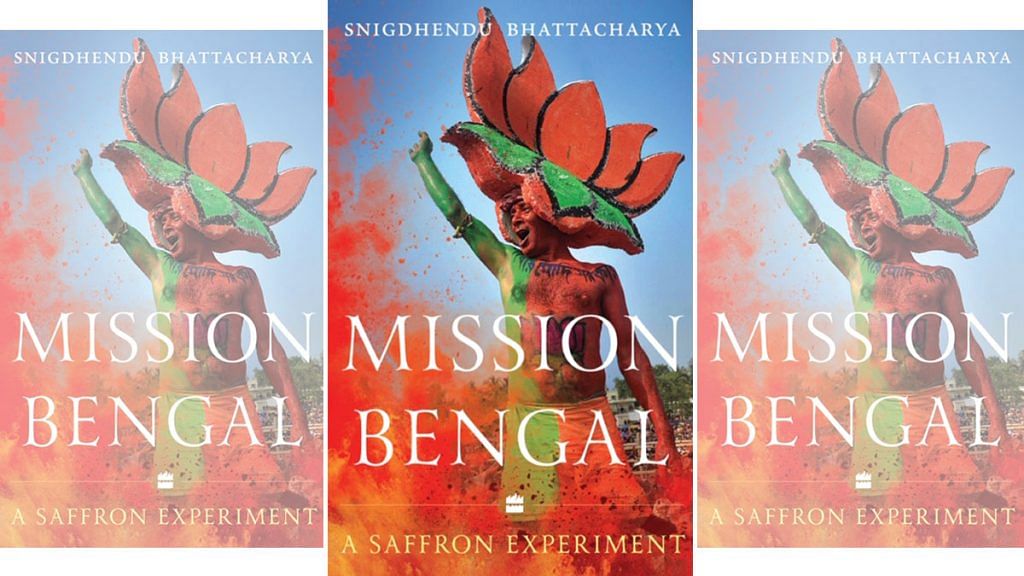New Delhi: After being on the political margins in 2013, the Bharatiya Janata Party (BJP) swept nearly half of the West Bengal’s 42 Lok Sabha seats in the 2019 general election.
‘Mission Bengal: A Saffron Experiment’ by journalist Snigdhendu Bhattacharya documents this unprecedented rise of the BJP in West Bengal and delves into how the running motto in the state changed from ‘Laal Salaam’ to ‘Jai Shri Ram’ in less than a decade.
The book, published by Harper Collins India, is due to be released on 30 September on SoftCover, ThePrint’s e-venue to launch select non-fiction books.
It looks at how the BJP’s chances of forming government in Bengal in 2021 have increased considerably while the Left, which ruled the state for three decades, has now been relegated to the margins.
However, Bhattacharya also notes how West Bengal Chief Minister Mamata Banerjee’s course-correction, with strategist Prashant Kishor’s aid, may yet turn the tide around in the state.
He places these developments in a historical context — rise of Hindu nationalism and Muslim separatism in the 19th century, Partition and its fallout, impact of developments in Bangladesh, influence of Leftist ideals on the psyche of the Bengali people and the demographic changes in the state over the past few decades.
Bhattacharya is a Kolkata-based journalist who writes on politics, security, history, socio-economic and cultural affairs. He has reported for various media houses including Hindustan Times, The Wire and Outlook.
“Mission Bengal narrates how Mamata Banerjee’s attempts to reduce the opposition to insignificance in the state backfired, how the saffron camp’s push for Hindutva triggered Bengali ethno-linguistic sentiments and how allegations of corruption created a strong wave of anti-incumbency against the state’s ruling party that may eventually play a more crucial role than the communal polarisation,” said Bhattacharya.
Also read: Elections have become meaningless in India — the BJP wins even when it loses
